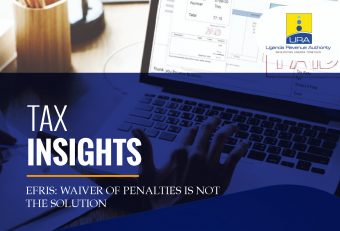From time immemorial, human capacity to collectively evolve and transcend their limitations has been informed by its ability to innovate/ create novel solutions and products.
From the Stone Age to the industrial age, mankind has consistently and continuously improved the quality of life through innovations. These innovations and creations have generally been considered as both necessary and important to man kind’s quest for continuous improvement. However, innovation has never had universal reception, recognition and acceptance.
Many a time, the law in place has played a fundamental role in either fostering or curtailing the different innovations. With the ongoing fourth Industrial revolution and the numerous disruptive technologies, the need for an enabling regulatory environment has become much more important as an enabler.
Whereas the law has historically played the role of catch up, in relation to innovation, Uganda Communications Commission (UCC) rose to the occasion by putting in place an enabling regulatory environment for technological innovators within the communications space. UCC, pursuant to its statutory powers under section 6 of the Uganda Communications Act, 2013, came up a new authorization framework for television broadcast. While the authorization framework is primarily intended to cover issues of television broadcasting, it provides, for arguably the first time in Uganda’s regulatory architecture, the possibility of being granted a temporary license within the entire communications sector. While Uganda has named it a temporary licence, other countries have different nomenclatures such as regulatory sandboxes. This is akin to a clinical trial in the medical or pharmaceutical world whose primary purpose is to test out new things in a safe and controlled environment.
According to the UCC licensing framework, a temporary licence shall be available for research and innovation purposes. This licence will provide a safe environment for businesses to test new and innovative products while providing an appropriate safeguard to contain the consequences of failure for the wider industry and consumers. This licence shall be regional in nature and shall be valid for a period of only six (6) months renewable once.
Among some of the parameters for the grant of a temporary licence, will be the demonstration by an applicant that; the proposed activity is a communications service or is intended for entities regulated by the Commission (value added services and that the new product, service, model does not easily fit the existing regulatory framework.
Regulation should be open, patient and diligent.
There is no standard procedure or recommendation for the regulation of nascent industries let alone an emerging technology. In some cases, a hasty move to regulate an industry or innovation may have the undesirable effect of stifling or worse still, harming the industry/ innovation. However, with the potential massive and positive impacts these innovations can bring to the innovators, investors, the public and the economy at large, it is always a good thing, if the regulators can have an open receptive mindset as opposed to outright conservatism and biased opposition. On this front, UCC should be highly commended. Of course, an open mind should be no substitute for rigorous scrutiny and due diligence on the part of the regulators, as regulators owe it to the public to be careful. Further safe guards should also be put in place to ensure that the issuance of a temporary licence will not be misrepresented to amount to a seal of approval by the regulator to the detriment of investors and the public.
In exercising this diligence, the regulators should not attempt to define and or influence the investment universe with their preferences, but rather set in place measures for the establishment of only the basic safety protection measures in favour of the public. It is for this reason that the new framework can be said to have ushered in a new dawn for many innovators within the Communications space and which could set the pace in other sectors. It further responds to numerous calls by innovators within the communications sector, who have been calling for such an enabling licensing framework, many of whom unfortunately, may not be aware of such a development or possibility.
Idoot Augustine Obilil (LL.M, ICT & Communications Law (Oslo)
Partner, Technology, Media and Telecommunications (TMT)
Kampala Associated Advocates


